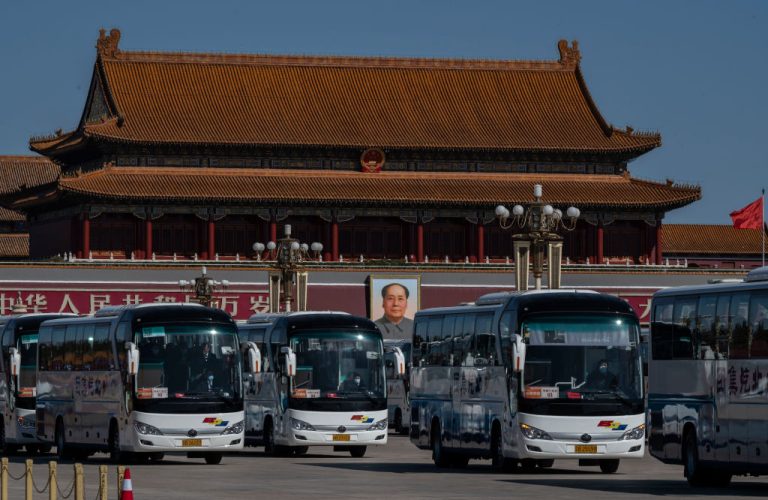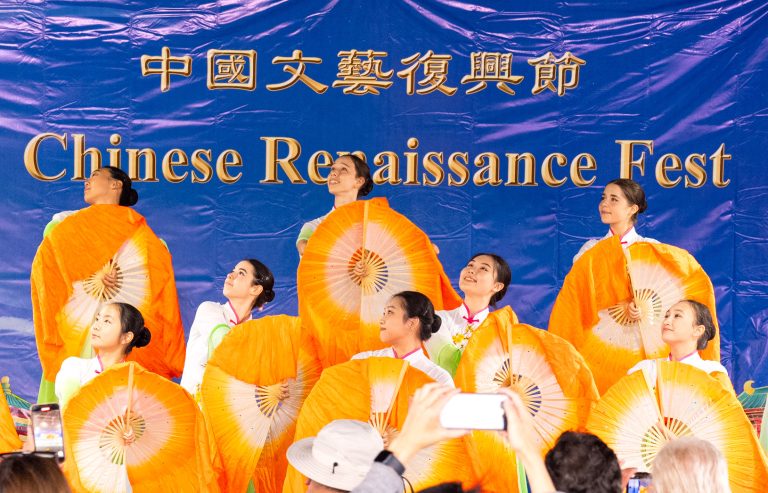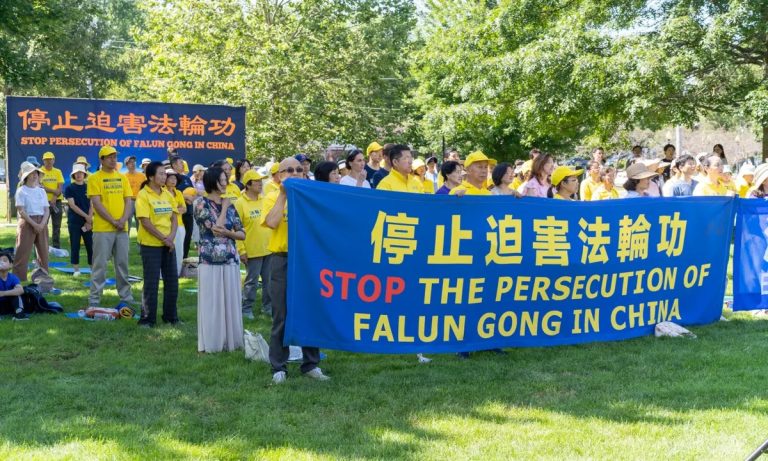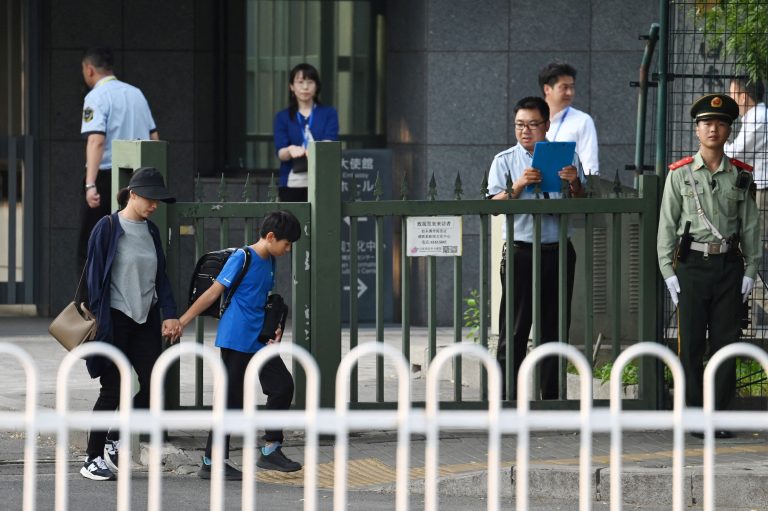Authorities in Beijing are considering a plan to ban advertising on public buses that pass through Tiananmen Square, where communist symbols adorn the entire square, Radio Free Asia (RFA) reported.
Under the proposed law, advertisements would be forbidden from being placed on the sides of buses and trolley-buses to prevent “tainting the purity of communist monuments with commercialism.”
Shying away from the era of Deng Xiaoping’s economic reforms, the current leadership of the Chinese Communist Party (CCP) appears to move against the private sector to establish “socialism with Chinese characteristics in the new era,” political commentators said.
According to draft revisions on the regulations, a “forbidden zone” would be established in Tiananmen Square and the CCP’s center of power Zhongnanhai, the state-owned news outlet Beijing Daily reported. Chang’an Boulevard, situated between the Wangfujing shopping district and Xidan, would also prohibit buses from featuring advertising.
“Vehicle body advertisements should be rectified in a timely manner,” state broadcaster CCTV reported.
READ MORE:
- Beijing Official Dismissed Over Possession of Banned Books as Xi Jinping’s Works Dominate Market
- CCP ‘Culture Enforcers’ Descend Upon the Populace
- How the Tiananmen Massacre Changed China
Advertising control
Success
You are now signed up for our newsletter
Success
Check your email to complete sign up
Tiananmen Square, the site a massacre of civilians by the CCP on June 4, 1989, has seen increased security following dissenters’ attempts of self-immolation amongst other forms of protest, RFA wrote.
“The leadership… basically rejects the private sector and commercial activities,” a Beijing-based journalist, who only supplied his given surname Ma for fear of reprisals, said, adding that the CCP’s opposition to private commercial gain is the reason for the advertising ban.
“I think it’s in line with their thinking… that buses passing through Tiananmen Square won’t be allowed to carry advertisements,” he said.
“There aren’t that many routes that go along Chang’an Boulevard — just the No. 1 and the No. 5,” a resident in Beijing, surnamed Zhang, told RFA, adding that, “So it’s pretty minimal.”
Zhang also added that the subway system encourages passengers to depart on side-streets, rather than climbing up the stairs to Chang’an Boulevard. ID access is also required to enter Tiananmen Square. He called it a “return to a pristine, socialist past.”
“When I was a kid, you could wander in and out of Tiananmen Square at will,” he said. “ Now you have to book in advance.”
Social activist Lu Jun told RFA that the CCP is attempting to “create a uniform look” when displaying their media to their population.
“It’s to create a uniform look, so that when you see TV footage or watch the news, all of the shots and images that you see will have been carefully controlled by the Communist Party,” he said.
Lu also compared the advertisement ban to a very similar move in North Korea, where advertising is also very restricted.
“[This will create] a clean look of extreme purity, with no whiff of commercialism anywhere,” he said, adding that, “The thinking is all about political correctness.”







